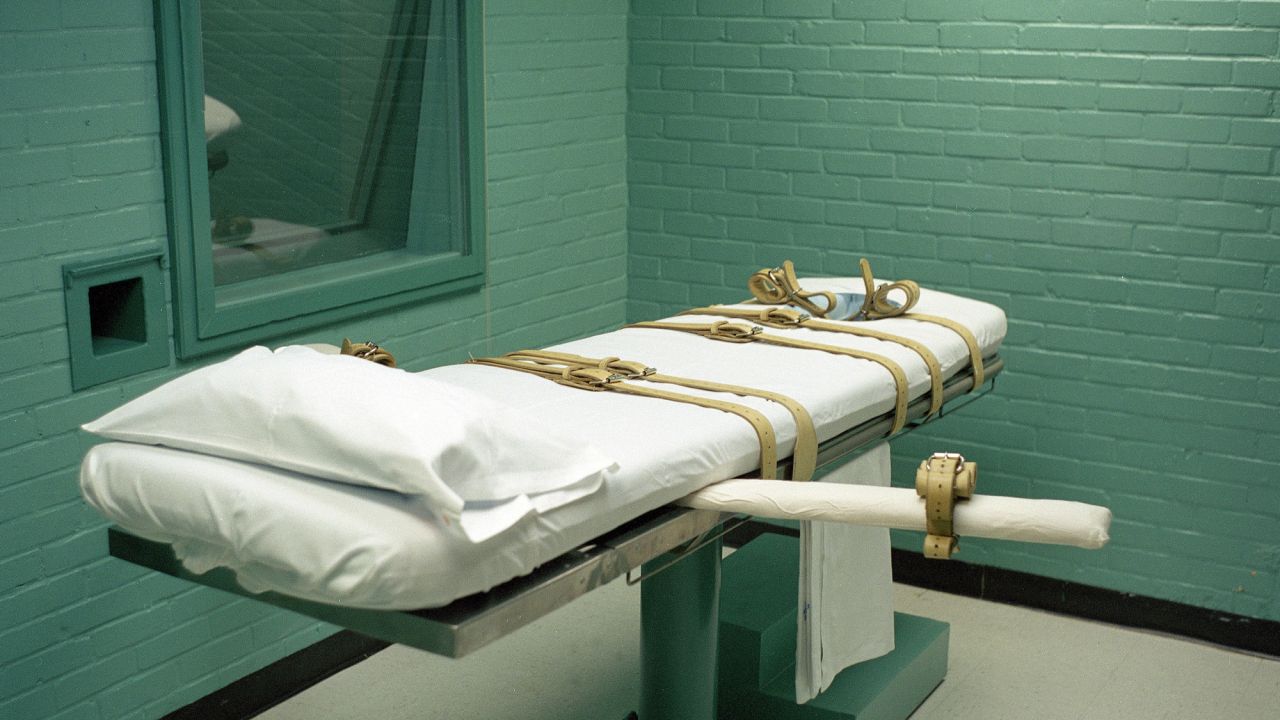
Ledell Lee was put to death last Thursday, just hours after the reputation of the Arkansas Supreme Court suffered devastating, self-inflicted wounds by refusing to delay Lee’s lethal injection. The execution, the state’s first since 2005, amounted to death by politics.
The same court rejected appeals by two prisoners who were executed one after another Monday night.
Lee’s death was the first in what Gov. Asa Hutchinson had planned as a series of eight executions to be carried out in a period of less than two weeks. The tight schedule, coming after a decade of no executions at all, was attributed to problems with the drugs used in Arkansas’ lethal injection procedures.
Hutchinson wanted to move swiftly. One of the drugs in the state’s pharmacy, the controversial sedative midazolam, bears an expiration date of April 30. What’s more, the companies that manufacture the other two drugs in Arkansas’ execution protocol are suing the state to prevent their use.
Ironically, the fast-track execution plans in Arkansas may backfire for capital punishment’s supporters. The state’s strategy has attracted scrutiny and criticism, even revulsion, from around the country. Arkansas is now in the big leagues of the death penalty business, sharing a dubious center stage with Georgia and Texas. It is getting the kind of attention that chambers of commerce don’t like.
Local reaction was also tepid. Capital punishment has strong support in Arkansas polls, but when theory meets reality the result is different: The state had so much trouble recruiting witnesses for the eight planned executions that it had to appeal to the Little Rock Rotary Club for volunteers.
The Hutchinson plan triggered a frenzy of legal action at both the state and national levels, resulting in stays of execution for four of the eight condemned men. One of them was to have been executed the same night as Ledell Lee. He was not, and the reason for that raises serious questions about Arkansas justice. Stay tuned.
But first, Ledell Lee: He was 51 years old when he died, and had been under sentence of death for more than 20 years for the 1993 murder of Debra Reese in a Little Rock suburb. The woman had been bludgeoned to death.
At Lee’s trial, in 1995:
- A forensic expert testified that “Negroid hair” was found in the victim’s home, adding, “I cannot say that it is not [Lee’s], but I can’t say it is his.” The hair was admitted into evidence.
- The state argued that “pinpoints” of blood were found on the defendant’s boots. Testing could not link the blood to either the victim or defendant, but the state was allowed to claim to the jury that it implicated Lee.
- Three prosecution “eyewitnesses” could not agree on where or when they saw Lee the day of the crime, or what he was wearing. But they all said they had seen him in the victim’s neighborhood. “This is not remarkable,” an appellate judge would note later, “because he lived in the neighborhood.”
- Latent fingerprints were found throughout the victim’s home, but none of them matched Lee’s.
- The trial judge apparently was having an affair with a top lawyer in the prosecutor’s office. He did not recuse himself. (Three years later, after marrying the prosecutor, the judge stopped hearing criminal cases. “I’m just being cautious,” he said.)
Nonetheless, at the conclusion of the trial, 12 good citizens of Arkansas found Ledell Lee guilty, and he was sentenced to death.
Think that sounds bad? It gets worse. The appellate process after that trial is a distressing indictment of the Arkansas justice system.
- Lee’s original, court-ordered appellate lawyer was drunk while arguing the case in the state’s court of appeals (opposing counsel called his intoxication to the judges’ attention on the record), but was allowed to continue representing Lee on his initial state and federal appeals. However, romance apparently thrives in Arkansas’ legal circles: That lawyer and his co-counsel were later allowed to withdraw from Lee’s case because of their close “out of work” relationship.
- The lawyers appointed as replacements were not impaired by romance, but the record clearly shows another handicap: They were incompetent. They did no life history of Lee (likely fetal alcohol syndrome was determined years later), raised no mental health issues nor asked for competency testing (Lee was later found to have borderline intellectual skills). They filed briefs that were so inept that the state supreme court filed disciplinary complaints. Twice.
- At no point in the appeals process did Lee’s lawyers ask for up-to-date DNA testing of the hair and blood samples to advance a claim of actual innocence. Lee would later personally file DNA requests on his own (pro se in legal lingo), but those requests were ignored. Lee stayed on Death Row, where the execution clock had stopped in 2005.
Soon after the governor’s announcement of his April execution plans, the Innocence Project and the ACLU entered the Lee case. The new lawyers, Nina Morrison and Cassandra Stubbs, also agreed to represent Stacey Johnson, scheduled to die with Lee on April 20. Of the eight men on the original execution schedule, Lee and Johnson were the only ones who claimed actual innocence; the others had admitted their guilt.
The two lawyers, veterans of capital case litigation, were shocked at what they found in the Lee records. Previous appeals, they wrote, “had not even a shred of the facts that competent counsel would have provided.”
The new legal team had Lee evaluated by a mental health expert for intellectual deficits — for the first time since his arrest 24 years ago. The expert found “severe intellectual disability.”
More important, the new lawyers discovered that, incredibly, none of the previous appeals had requested DNA testing using methods that were not available at the time of Lee’s conviction. DNA testing of the “Negroid hair” and “pinpoints” of blood could, they argued, prove Ledell Lee innocent of Debra Reese’s murder.
DNA became a central issue in the last-gasp petition the lawyers filed with the Arkansas Supreme Court a day before the scheduled execution. (That petition is a compelling read.)
The Innocence Project and ACLU attorneys had raised similar arguments for DNA testing in their petition for a stay of Stacey Johnson’s execution, the inmate who was to die with Lee last Thursday. According to Nina Morrison, the DNA claims in the two cases were “virtually identical.”
On Wednesday, execution eve, the Arkansas Supreme Court granted Johnson’s stay of execution to permit the DNA testing.
On Thursday, the same court denied Ledell Lee’s request for a stay to allow the DNA tests in his case. What happened to cause the state supreme court to rule differently on the same issue within 24 hours?
Politics happened.
Gov. Hutchinson, architect of the execution schedule, came out swinging immediately after the court approved Johnson’s stay. “I am both surprised and disappointed,” he said. “I know the families of the victims are anxious for a clear-cut explanation from the majority as to how they came to this conclusion.”
Also on the heels of the Johnson stay, the chairman of Arkansas’ Senate Judiciary Committee said: “I’m not going to question individual decisions, but I would say there is frustration among the legislature as to the court’s continued refusal to allow an execution to go through.” The chairman’s name is Jeremy Hutchinson. He’s the governor’s nephew.
Conservative groups also were livid at the Johnson decision. They had pumped more than a million and a half dollars into two Supreme Court election campaigns last year, and felt they weren’t getting their money’s worth. Election campaigns? Yes, that’s how it’s done in Arkansas.
There is a significant difference between judge bashing in Washington and in Little Rock. President Trump can throw all the sticks and stones he wants at federal judges; he can’t hurt them, because they have lifetime appointments.
In Arkansas, even Supreme Court judges have to face the voters and are affected by changes in the political climate. The temperature turned frosty on Wednesday, and it is more than possible that the justices sought more insulation than their black robes provided. The brutal fact is that as the thermometer changed, so did the votes.
The Thursday denial of a stay of execution for Lee essentially sealed his fate. A flurry of legal activity at the federal and state levels held up the scheduled 7 p.m. execution, first until 8:15… then 9:15 …then until the United States Supreme Court turned down a final appeal at 11:30 p.m. “We had six different lawsuits running in three different courts,” said Nina Morrison of the Innocence Project.
In his cell at the Cummins Unit death house, Lee spent the time with his Little Rock lawyer, Lee Short, and a prison chaplain. He ate a last meal of fried chicken and received Holy Communion. He called his mother, brother and daughters, Short said, “telling them to stay strong and he would see them again one day.”
He passed out his belongings to friends on the unit. Stacey Johnson, who was to have followed Lee to the death chamber, got his supply of potato chips. “That moment was more than I could take,” said Short. “Tears rolled down my cheeks.”
Lee was led away to die; Johnson lived to eat those potato chips. It’s hard to believe that politics wasn’t at play.
“There is no rational explanation as to why one of these men is alive today with a DNA hearing scheduled, and one is dead,” says Nina Morrison.
In an eloquent dissent to the decision to permit Lee’s execution, Arkansas Supreme Court Justice Josephine Linker Hart called his case “identical” to Johnson’s. She wrote: “I am at a loss to explain this court’s dissimilar treatment of similarly situated litigants. The court’s error in denying the motion for stay will not be capable of correction.”
A fourth execution in Governor Hutchinson’s planned series is to take place on Thursday.
Unless the political weathervane shifts again.
View the Execution Proclamation from Governor Hutchinson
Note: Originally the post said that conservatives were livid at the Lee decision, but they were actually livid about the Johnson decision. The post was corrected.




